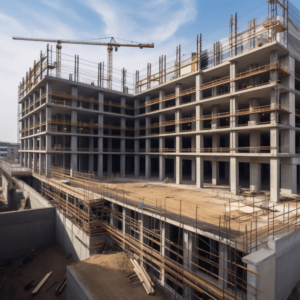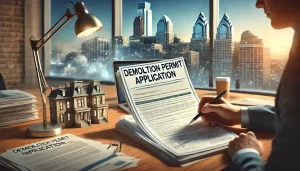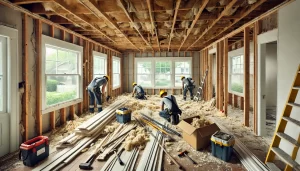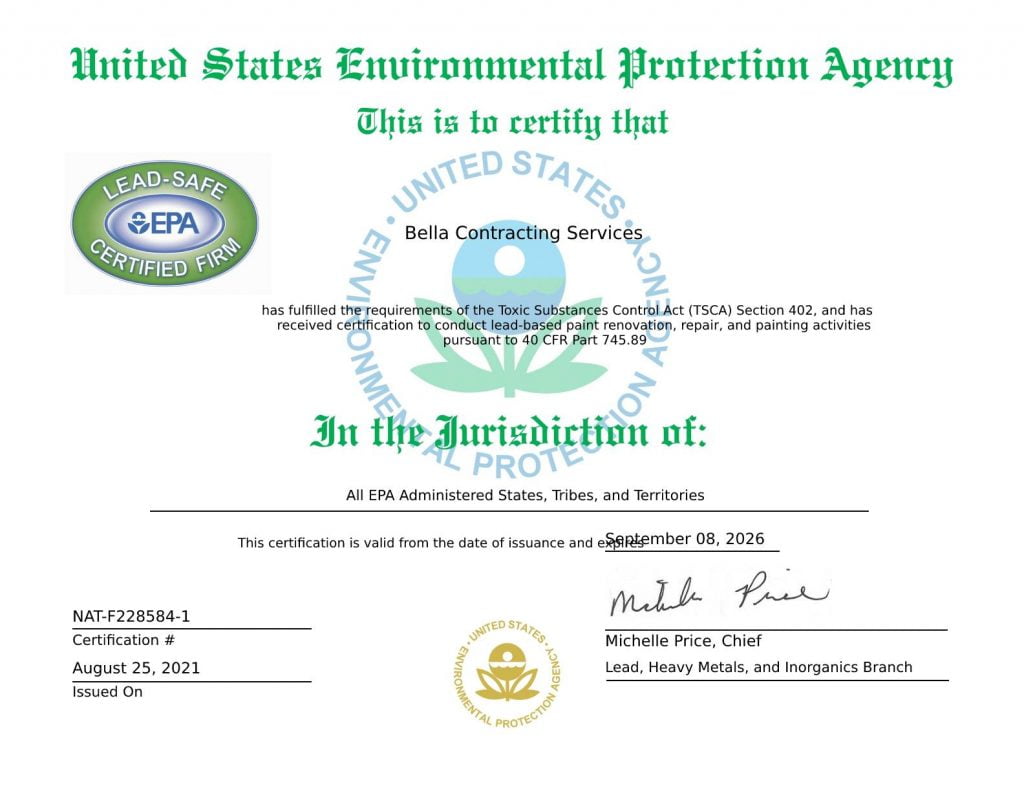Building a business is no small feat – it takes dedication, hard work, and often significant investment. But even with the best intentions, many aspiring entrepreneurs in New Jersey discover that their dreams are curtailed by zoning regulations. Whether they’re looking to open a restaurant or start up a manufacturing plant, these rules can have an enormous impact on commercial construction projects across the state.
For those who don’t know what zoning regulations entail, here’s a brief overview: Zoning laws dictate how land may be used within specific geographic areas. In some cases, this means determining which types of businesses are allowed at certain locations; in others, it could involve restrictions on building height or size. No matter what kind of project you’re planning, understanding the local zoning requirements is essential before investing time and money into your endeavor.
In this article, we’ll delve deeper into the issue of zoning regulation and its effects on commercial construction throughout New Jersey. We’ll look at how various municipalities have responded to changes over time and examine case studies from successful companies that managed to overcome obstacles posed by restrictive zoning policies. Through our exploration of this complex topic, we hope to provide readers with invaluable insight into navigating the ever-changing landscape of commercial development in the Garden State!
Overview Of Zoning Laws
In New Jersey, zoning regulations play a major role in the construction of commercial buildings. Zoning is a form of land use regulation that establishes what types and sizes of structures can be built on certain properties. It promotes safety by ensuring residential areas are kept separate from industrial or hazardous locations, as well as providing an orderly means for growth and development to occur.
Commercial zoning specifically focuses on allowing appropriate businesses to inhabit particular areas while protecting homeowners’ rights. This usually involves establishing building codes that developers must adhere to when constructing their projects. Zoning ordinances also aim to protect public health, safety, welfare, comfort, convenience, and general prosperity by granting permission to construct within designated parameters.
When considering commercial construction in New Jersey, it’s important for builders to take note of all applicable zoning laws and restrictions before they begin any work. Doing so will ensure their project not only remains compliant with local rules but meets the needs of those who live nearby too.
Effects On Commercial Construction
The zoning regulations in New Jersey can have a significant impact on commercial construction projects. Here are just some of the ways these laws influence builders:
• Building Permits: Before any construction project begins, developers must obtain approval from local authorities and secure all necessary permits. This process requires an understanding of relevant zoning ordinances to ensure that proposed structures comply with existing rules. Failure to do so could result in hefty fines or even delays in completion.
• Construction Regulations: Depending on the area, commercial developers may also be required to adhere to certain set-back requirements or other design guidelines regarding their building’s size and shape. In addition, noise restrictions may need to be followed during construction hours if it is likely to disturb nearby residential areas.
• New Jersey Law: Finally, there are other state laws that apply specifically to commercial development in New Jersey such as environmental regulations and labor standards. Understanding how these legal provisions affect your project will help you stay compliant while minimizing potential risks associated with noncompliance.
These considerations demonstrate why it’s essential for those looking to build commercially in New Jersey to familiarize themselves with all applicable zoning regulations beforehand. Doing so helps ensure a successful outcome for both the developer and those who live around the new structure – creating a sense of community through a shared vision brought about by careful planning and adherence to existing laws.
Implications For New Jersey
Overall, zoning regulations in New Jersey have the potential to shape the future of commercial construction projects. These laws can dictate what is built and where it’s located, creating a framework that developers must adhere to if they want their project to move forward. This can be both beneficial and restrictive for those involved with building commercially in the Garden State.
On one hand, these rules provide structure and ensure that residential areas are not disrupted by noise or other nuisances associated with large-scale developments. On the other, they limit creativity when it comes to design elements which could potentially lead to innovative solutions for meeting growing demands within communities. Ultimately, understanding how these restrictions affect your plans will help you navigate any challenges that arise during construction so your project runs smoothly while benefiting all stakeholders involved.
The implications of such regulations are far-reaching – from providing stability through orderly development patterns to encouraging innovation through creative problem solving techniques – each playing an important role in ensuring sustainable growth throughout New Jersey over time. By taking into account both sides of this equation, builders have the opportunity to create something truly special for everyone who lives here now and in years ahead.


Frequently Asked Questions
What Is The Timeline For Implementation Of Zoning Regulations In New Jersey?
Understanding the timeline for implementation of zoning regulations in New Jersey is an important part of ensuring successful commercial construction. Companies looking to build need to be aware of any changes that may affect their projects, and local governments must adhere to a strict set of rules when it comes to development. By understanding the specifics behind the process, stakeholders can ensure they remain on track with their goals.
In New Jersey, zoning regulations are determined by each municipality or county, meaning there is no single timeline for implementation across all jurisdictions. However, many counties have similar processes which typically involve public hearings and votes from governing bodies. These meetings provide a platform for citizens and businesses alike to voice their opinion about proposed changes and give input into what should be included in these new laws. Additionally, after passing through these stages, certain pieces of legislation such as those related to commercial construction require approval at higher levels before being codified into law.
Is It Possible To Make Changes To Existing Zoning Regulations?
In today’s world, with cities continually growing and developing, it is important to consider the presence of zoning regulations. But what happens when these existing regulations need to be adjusted? Is it possible to make changes to existing zoning regulations in New Jersey?
The answer is yes! Though they may not always be easy or convenient, there are ways that a process can be initiated to amend, alter, adjust, revise, or modify an already established regulation. Depending on the size and scope of the change being requested, this could require filing paperwork at any number of levels – local government offices through state agencies. In some cases even congressional approval may be necessary.
How Does Zoning Affect The Cost Of Commercial Construction Projects?
Believe it or not, the cost of commercial construction projects in New Jersey can be greatly affected by zoning regulations. While this may come as a surprise to many people, understanding how zoning impacts these types of projects is essential for anyone hoping to build in the state.
In terms of zoning costs, building regulations are often responsible for extra expenses that wouldn’t otherwise be necessary if they weren’t implemented. For instance, certain local ordinances require developers to change their plans in order to meet specific standards set by governing bodies like city councils and county boards. This could mean anything from increasing setbacks between buildings to requiring materials that would add additional costs. On top of that, there’s also the economic impact that comes with following all the rules; having delays due to paperwork issues or losing out on potential investments because an area has been zoned differently than expected. All of these factors contribute to increased construction project costs which makes it difficult for builders to stick within budget constraints without sacrificing quality.
What Are The Benefits Of Zoning Regulations For The Economy Of New Jersey?
When we discuss the benefits of zoning regulations for the economy of New Jersey, it’s important to consider how such rules can be advantageous. Zoning regulations have become increasingly popular in recent years, as they offer an effective way to manage land use and protect local businesses from outside competition. By establishing clear guidelines for commercial construction projects, zoning regulations help ensure that local businesses are given a competitive edge over those from other states or countries.
In addition to providing local businesses with a leg up on their out-of-state competitors, zoning regulations also benefit the economy of New Jersey by preventing overcrowding and helping maintain property values. By restricting certain types of development in certain areas, zoning rules provide much needed boundaries so that communities don’t become too densely populated and resources—including housing—aren’t spread too thin. Such restrictions also make sure that neighborhoods remain desirable places to live and work; thus encouraging people to invest in them which ultimately bolsters the state’s economic growth.
What Are The Potential Risks And Drawbacks Associated With Zoning Regulations?
When it comes to zoning regulations, there are both potential risks and drawbacks that should be taken into account. Poorly crafted or overly restrictive zoning regulations can have detrimental effects on the economy of New Jersey by hindering commercial development and construction. Zoning restrictions can also impose regulatory risks on developers who may not be aware of all applicable laws regarding construction in certain areas.
These drawbacks associated with zoning regulations can lead to a range of problems for New Jersey’s economy, including:
• A decline in economic growth due to limited opportunities for business investment.
• Decreased competition amongst businesses due to reduced availability of land suitable for commercial use.
• Increased costs related to obtaining proper permits and other legal documents necessary for constructing buildings in zoned areas.
• The possibility of higher taxes resulting from decreased revenues caused by fewer businesses investing in regulated areas.
• Stagnation of existing properties as owners struggle to make improvements through expensive renovation projects or expansions without running afoul of local ordinances.
Conclusion
In conclusion, zoning regulations have had a significant impact on commercial construction in New Jersey. Although it can be argued that the implementation of the regulations has provided some economic benefits to the state, there are potential drawbacks too. For example, changes to existing zoning laws may not always benefit everyone and they could lead to higher costs for businesses when constructing new properties.
However, I believe that overall these regulations have been mostly beneficial for the state. Despite any risks or difficulties that arise from them, we cannot deny their importance in helping create more livable communities and stronger economies throughout New Jersey. It’s ironic how something so small as zoning can make such a big difference!
At the end of the day, although zoning regulations might seem like just another obstacle for businesses to overcome, with careful consideration and planning they can actually help us achieve our goals much faster than without them. With this in mind, let’s keep working together towards creating an even brighter future for all of us here in New Jersey!










